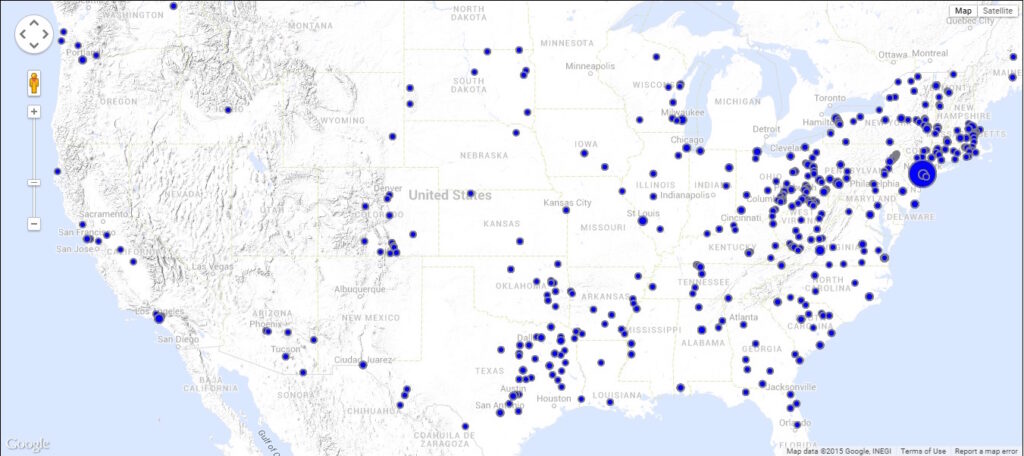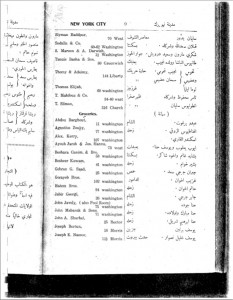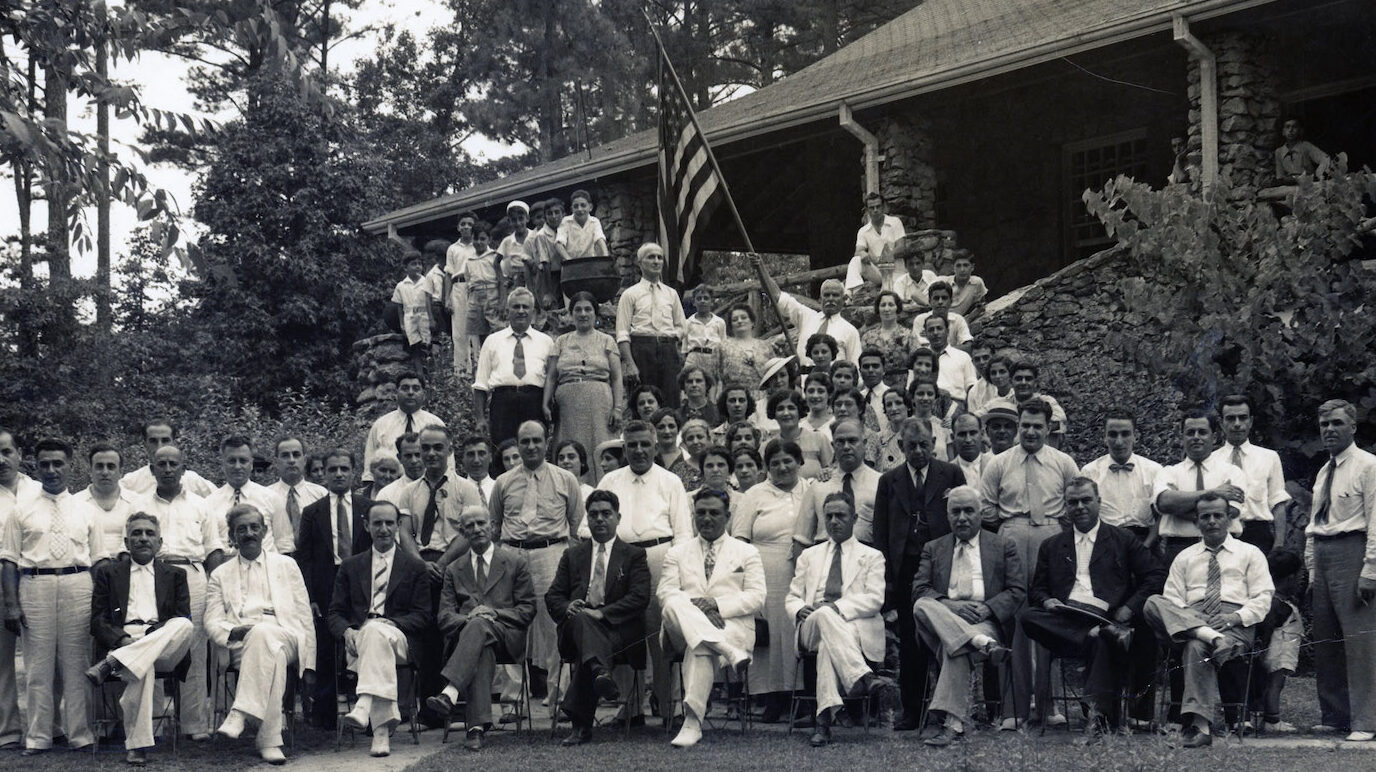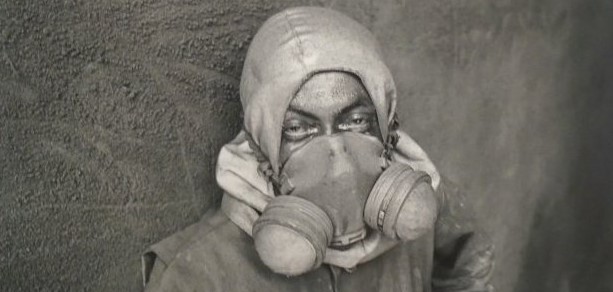Syrian-American Business Directory Project, 1908-1909
This article is written by Haley Vartanian, a student at NC State University majoring in International Studies and studying Arabic.
For the past six months I have been working with Dr. Akram Khater, a history professor at NC State University and the director of the Moise A. Khayrallah Center for Lebanese Diaspora Studies, to digitize the 1908-1909 edition of the “Syrian Business Directory” for the United States. This 256-page directory was a voluntary register of Syrian-American business-owners during those years, and presents the name of the owner, their business type and its address, and where they are from in the Middle East. Our project focuses on ‘Syrian’ immigrants and their roles in the United States, and with over 3,300 entries, the directory provides substantial information on the Syrian immigrants who lived in America in the early 1900’s and how they contributed to the American economy. It also tells us their gender, their geographical distribution within the US as well as their provenance, and can even denote their religion based on their surname.
As such, this directory provides a wealth of information previously available only anecdotally. Given the size of this sample, which represents about 30% of the total population, we can finally ascertain the percentage that came from Lebanon as opposed to other places, and the distribution in the type of businesses they owned in contrast to the image of the Lebanese as peddler. Moreover, this information contributes to our knowledge of the Arab immigrants living in the US and helps to establish that they have been here for over a century, regularly contributing to the economy and living among their fellow Americans peacefully. This is critical in our post 9/11 age, when there has been renewed focus on the Arab population, much of it negative and associated with terrorism and ‘otherness’. From examining and transcribing all of the data, there are a few observations that we can make about the Syrian business-owners. First of all, the business-owners appear to be overwhelmingly male, as can be expected for the early 1900’s. Since it is a business directory where owners volunteered their personal information, it could be that women had a bigger role in business but just were not listed in the directory as owners. In fact, other evidence shows us that women were equal partners with their husbands in establishing and running stores. However, there are at least 12 entries which mention women as sole proprietors and where they are denoted with a ‘Mrs’ or ‘Madam’ before their surname. They have a range of businesses, with the majority dealing with dry goods and food, but a few with clothing and one with midwifery. Overall, the majority of businesses are dry goods and food, such as groceries, tobacco, fruit, and confectioneries. However, there are a fair amount that sell ‘oriental’ goods and rugs, and many smaller groups of more specialized professions, such as tailors, jewelers, farmers, bankers, and doctors. There are also a number of real estate, restaurant, hotel, and pool room owners. Finally, there are some singular businesses that stand out, such as ‘skating ring’, ‘Egyptian printer’, and ‘ostrich feathers’.
By The Numbers Total Entries // 3,341 Top 3 Business Types // Dry Goods (1,139); Groceries (732); Fruits (470) Number of Businesses Owned with Family // 494 Most Popular Origin // Zahle, Lebanon (446) Most Remote Destination City // Bellevue, Idaho (J. George Arkoosh & Joseph E. Arkosh, originally from Maad, Lebanon; Both owned dry goods stores) Spotlight on Raleigh, NC // Abdallah Mansour, originally from Qornet al-Hamra, Lebanon; Owned wholesale dry goods store
In 1908-1909, a large percentage (10.5%) of the Syrian immigrants lived in New York City. In fact, there were so many that despite the fact that the directory is ordered alphabetically by state and city, New York City and Brooklyn appears at the very front of the list and take up pages and pages before the Alabama businesses begin. New York City also has the greatest variety of businesses, most likely because the large population allows for greater job diversity. The next cities with the most entries are Lawrence, Massachusetts with around 70, and St Louis, Missouri and Roanoke, Virginia with around 50 each. Aside from these concentrations, there are anywhere from a few to a few dozen Syrian business-owners spread out in a wide range of cities in 45 of the 48 mainland US states (none in Utah, Nevada, and Delaware). States close to New York City, which was the intake point for immigrants, seem more heavily settled, like Pennsylvania, Ohio, Connecticut, and Massachusetts. The East Coast in general, as well as larger states such as Texas, also have a higher Syrian population. Some state populations are tiny, though: three businesses found their way to Hartville, Wyoming, and two to Bellevue, Idaho–the only Syrian-American businesses listed in those states. However, the businesses stretch out to all four corners of the United States, and there could be even more that did not volunteer to be listed in the directory. For example, there is only one business listed for Raleigh, but we know from other data that there were other stores such as the one owned by the Shehdan family. Elsewhere in North Carolina, there are several more businesses that we know of in Charlotte, Statesville, Goldsboro, and Wilmington that are not listed in the directory.

One of the final points that can be seen at a glance is the variety of places from which the business owners emigrated . Next to most of the entries is the owner’s Middle Eastern provenance, written in Arabic. The two most listed cities by far are Zahle and Beirut; both are large cities located in modern-day Lebanon. Other cities with a high number of migrants are Damascus, Syria, and Tripoli, Lebanon, also large cities in the region. There are immigrants from many smaller cities and towns throughout modern-day Lebanon and Syria, though, and even some listed from Egypt, Iraq, and modern-day Israel and Palestine. Because business-owners volunteered their information to be included in the directory, some non-Syrian Arab immigrants most likely entered their businesses to advertise to other Arabic-speakers. Overall, there is a vast amount of information contained in this directory, and we are excited to map the data in a visual and interactive platform geared toward the public. The data found in the business directory is evidence of all of the Arab immigrants that have been living and working in the US for more than 100 years, and shows that they are as varied and as diverse as any other demographic.
- Categories:



